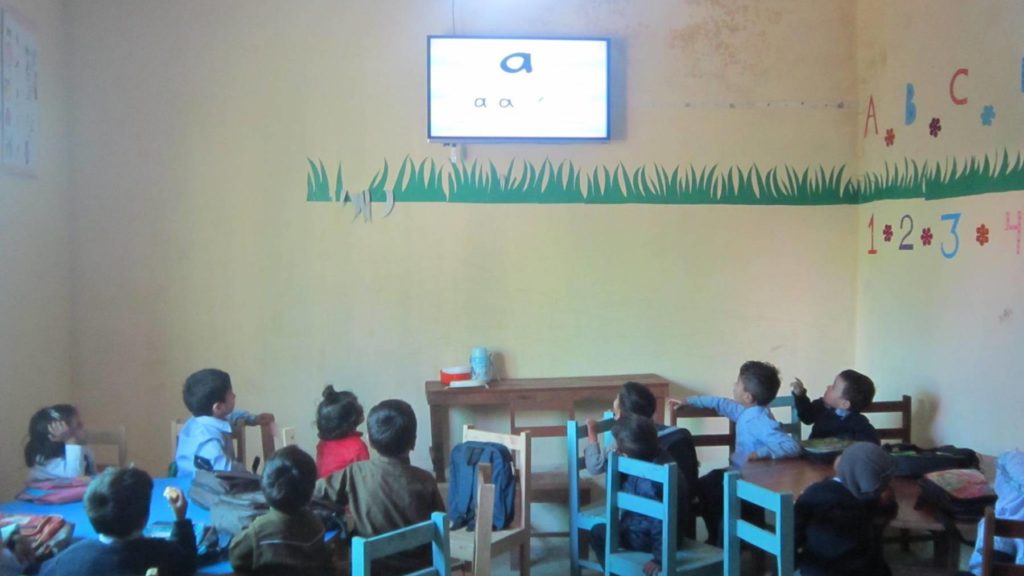The Orenda Project: Using Cartoons to Spread Education in Pakistan.

A graduate of Georgetown University in Qatar (GU-Q) is set to expand a small educational startup from a pilot program that digitally streams a high quality curriculum to classrooms of four and five year olds, to a large scale program that brings education to the millions of out of school children in Pakistan.
Haroon Yasin, who graduated from Georgetown last year, first developed the innovative school project titled “Orenda” with a team of classmates (Ahwaz Akhtar, SFS ’16, Fatima Ramadan SFS ‘13) as a senior. Following graduation, his project to build sustainable classrooms in slums faced a major obstacle: the Pakistani government began to demolish the slums and relocate the very people he was trying to help, most of whom were refugees from Afghanistan.
“When the government advised us of the planned demolitions, we realized we had to go back to the drawing board if we wanted to accomplish the same goal of Orenda: to bring formal education to slum kids who were often left begging in the streets, or doing odd jobs like washing cars and homes, instead of getting an education,” said Haroon.
The result of that brainstorming was the decision to move the classroom to a place where natural disasters and government policies would have less disruptive impact: online. “We had to develop a system that was bullet proof. We realized that in areas where we worked, three square meals a day were often a rarity, but there was a proliferation of affordable internet service and smart devices like cell phones.”
Taking advantage of the opportunities online access offered, Haroon, with his small team of dedicated partners, decided to transform the formal government school curriculum to a digital format that was flexible, inexpensive, and that would catch the attention of children under the pressure of poverty to begin working early.
“We created a cartoon series using easy-to-use digital illustration software, hired teachers, and developed a program that creates daily storyboards to teach required concepts to a classroom of 4 and 5 year olds. We can even send the daily teaching modules directly to parents’ cell phones, in cases where the child can’t come to the classroom for various reasons,” he said. Recently, schools in Pakistan have been closing down for many days at a stretch due to the worsening security situation. In such a scenario, a virtual solution offers much needed instructional continuity at home. Most importantly, cartoons have an added bonus of keeping students engaged and interested in their studies.
The results have been astonishing. Through the cartoons set in the imaginary city of “Taleemabad”, which is Urdu for “Education City”, says Haroon, “children are learning faster, and better, retaining the information for longer periods of time. The internet also allows us to rigorously collect test score data and observe whether our intervention is working. So far, the results have shown constant improvement in student performances, since we began the project four months ago.”
Starting in April, Haroon and his team plan to launch a campaign drive to fund the expansion of the successful pilot program, which already enrolls 72 students in Islamabad, to bring education to 500 more students by the end of the year, with an eye towards partnering with Pakistan’s education ministry to explore even broader implementation possibilities. A Facebook page and website, share details of the program, and have more information about the upcoming expansion launch.